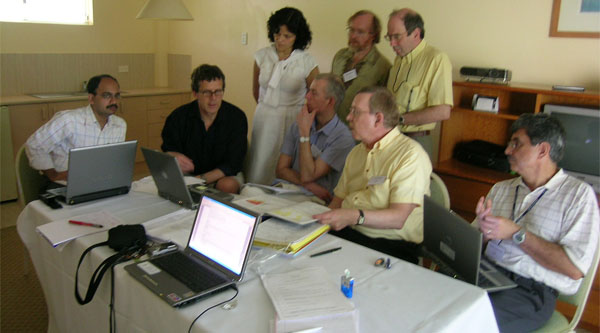Global Change Programs

For two decades, ORNL has been a leader in studies of issues related to global sustainable development, especially global climate change.
Examples of this work include leadership roles in the first U.S. National Assessment of Possible Consequences of Climate Variability and Change (1997-2000), especially related to regional impacts; the Intergovernmental Panel on Climate Change (IPCC) Working Group II (Impacts, Adaptation, and Vulnerability) Third Assessment Report (1998-2001); and aspects of the UNEP et al. Millennium Ecosystem Assessment related to issues of geographic scale and regional and local assessments (2001-2005).

More recent activities have included leadership roles in the IPCC’s Fourth Assessment Report, Working Group II, Chapter 7: Industry, Settlement, and Society, and that group’s Technical Summary and Summary for Policymakers (for which, along with other IPCC Fourth Assessment Report Lead Authors, ORNL was formally recognized as a Co-Laureate for the 2007 Nobel Prize for Peace); Coordinating Lead Author for the U.S. Climate Change Science Program’s Synthesis and Assessment Product (SAP) 4.5 (Effects of Climate Change on Energy Production and Use in the United States); Lead Author for one of three sections (Effects of Global Change on Human Settlements) of SAP 4.6 (Effects of Global Change on Human Health and Welfare and Human Systems); Lead Author of SAP 2.2 (State of Carbon Cycle Research); and a Lead Author of the CCSP “Unified Synthesis Product:” Global Climate Change Impacts in the United States, scheduled for release in March 2009.
Since 2004, Tom Wilbanks of ORNL has been Chair of the Committee on Human Dimensions of Global Change of the U.S. National Research Council (NRC), and he is a frequent member of other NRC boards, committees, and panels, including membership on the NRC Board on Earth Systems and Resources, 2002-2007. In November 2008, he was appointed to the committee leading NAS/NRC’s historic Congressionally-mandated two-year study of “America’s Climate Choices,” and he will also serve as Vice-chair of the adaptation panel for that report.
Current major projects are supported by the Department of Energy (climate change impacts and adaptation), the Department of Homeland Security (dimensions of community resilience), NOAA (decision support infrastructures for climate-related actions), and other agencies, along with support from the Oak Ridge National Laboratory (regional implications of relatively severe climate change).
